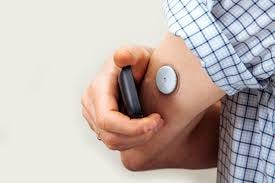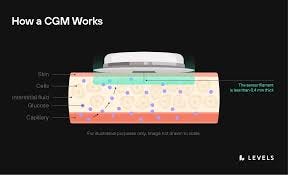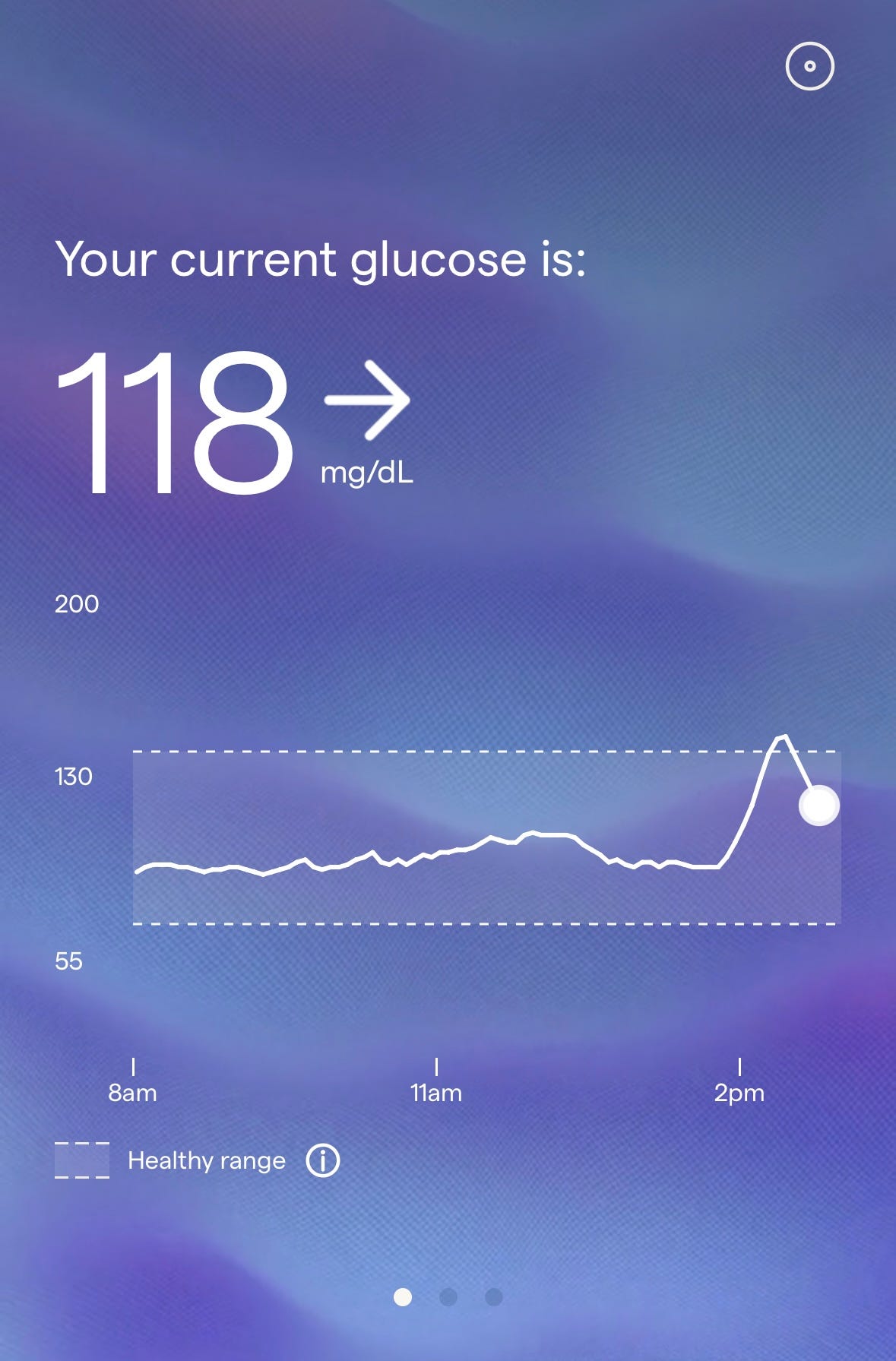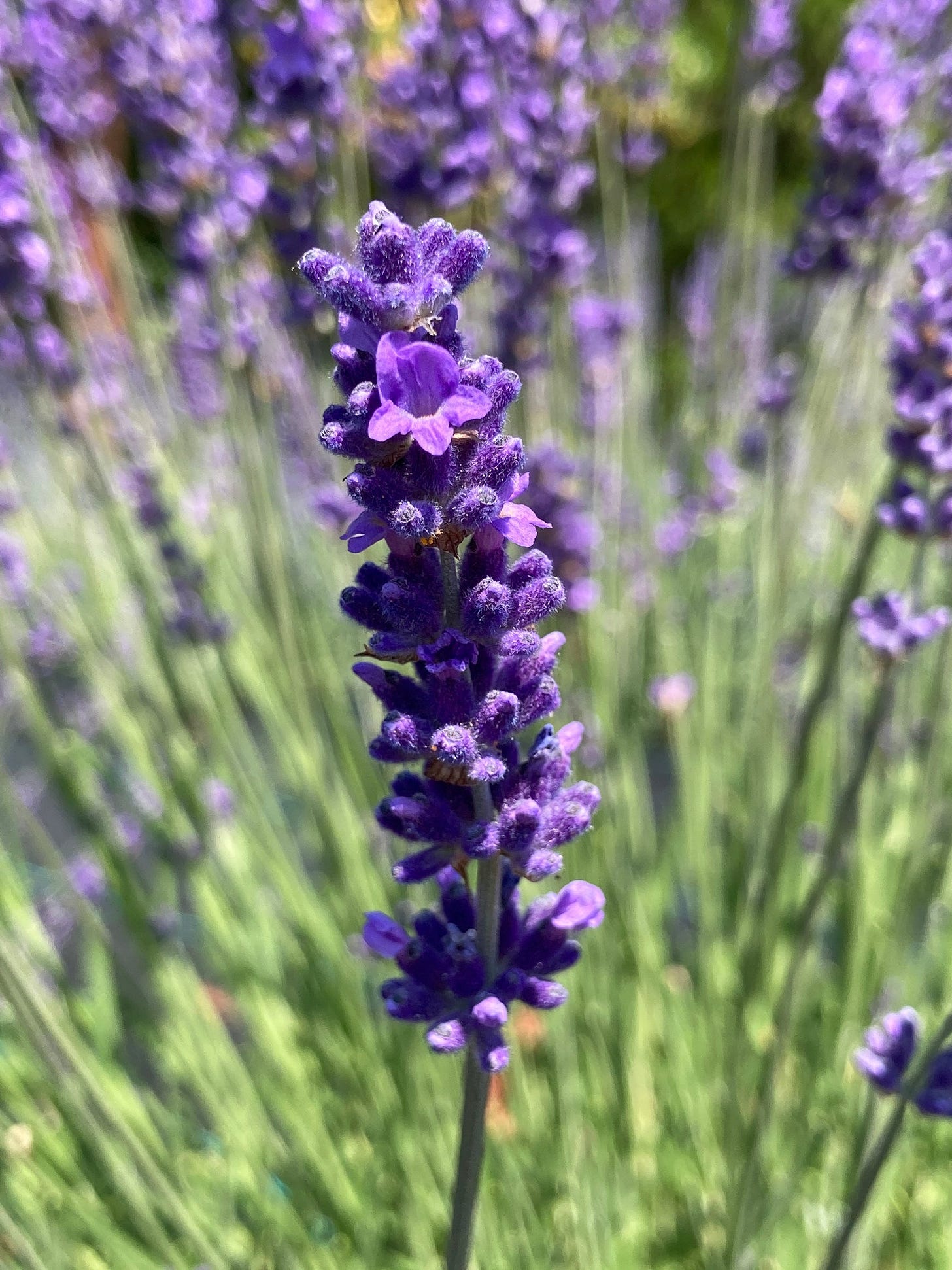Hi everyone!
I’m excited to announce our newsletter is now on Substack! This new platform offers a much better experience—allowing you to post comments, join discussions, and connect directly with me and our community (I’m still learning how to use this new platform so stay tuned as I roll out these features). It’s all about creating a more interactive, supportive space. And don’t worry, our newsletter will remain free. Thank you for being part of this journey!
Continuous Glucose Monitors (CGMs) on People Without Diabetes
I haven’t shared this before, but diabetes runs in my family, and with its strong genetic predisposition, I know I need to stay proactive. Even with a balanced diet and avoiding high-glycemic foods, I’ve noticed my A1c—a marker of blood sugar over three months—has slowly drifted toward the “pre-diabetes” range over the last few years. Since I’m all about living as long and as healthy as possible, I decided to get ahead of this now.
After some research and speaking with my doctor, I chose to try out a continuous glucose monitor (CGM) for the first time called the Lingo by Abbott, which is FDA-approved for over-the-counter use for people without diabetes. There’s a few other CGM’s out there created by companies for people with and without diabetes. A CGM works by measuring the blood sugar in our interstitial space (the small area between cells in our body where fluid and nutrients pass through to help cells communicate), so it doesn’t involve pricking your finger or causing any pain.
It syncs with your phone and reads out a continuous blood sugar reading so you can see how exercise, food, and stress affects your blood sugar.
Here’s my current blood sugar for today: I ate a high protein breakfast in the morning followed by playing a game of tennis which kept my blood sugar stable. I ate lunch around 1:30pm (as you can see with the spike at the end), and as we speak my insulin is bringing down my blood sugar. Super interesting.
This CGM is a bit pricey at $49 for 14 days, BUT it’s an investment in my health, and I’ll share what I learn along the way. Regardless of if you ever try a CGM, I encourage EVERYONE to get annual bloodwork to test for diabetes, especially an A1C test if possible, to catch early signs of issues. Managing blood sugar isn’t just about physical health—it’s essential for mental health, too.
A Silent Risk Factor For Dementia Discovered
A recent study published in Nature Mental Health and funded by the US National Institute of Mental Health looked at over 600,000 people to better understand how loneliness impacts brain health. Here’s what they discovered:
Individuals who experienced prolonged loneliness faced a 31% higher likelihood of developing dementia.
Additionally, loneliness raised the risk of cognitive impairment by 15%.
This research highlights that loneliness is MORE than an emotion—it’s a KEY factor for cognitive decline that we have the power to change. We CAN address loneliness by fostering connections and supporting our loved ones. I tell many of my patients that loneliness can be combated in small and manageable ways. For example: a weekly trip to a coffee shop, catching up with an old friend on the phone, joining a club or organization.
What’s more, loneliness isn’t just an issue for the elderly. Establishing social habits in your 20s, 30s and 40s can significantly influence your cognitive health for years to come.
Lavender for Anxiety?
I’m always looking for supplements or medications that can reduce anxiety without leaving us with annoying side effects. This week I dove into the literature on Lavender capsules for anxiety and was shocked by how effective this herb can be.
Many of us know Lavender as the flowering plant that smells amazing and can help us de-stress, but it can also be pressed into an oil which oil is purified, encapsulated in a gel or vegetarian capsule, and sometimes combined with other stabilizers to ensure effectiveness and prolong shelf life.
Lavender capsules, are an established treatment for anxiety in countries such as Germany, where they’re used to treat generalized anxiety disorder (GAD). Though less commonly used in the U.S., studies have shown that Silexan (the name of the lavender capsule) is both effective and generally safe. Clinical trials reveal that Silexan can significantly reduce anxiety symptoms within a few weeks, performing comparably to treatments like lorazepam (a benzodiazepine) and paroxetine (an antidepressant - “SSRI”) , but with fewer side effects.
It has also been found to improve related issues like sleep disturbances and mild depression, making it a comprehensive option for those with anxiety. Unlike benzodiazepines, Silexan does not cause sedation or carry risks of dependence, making it an alternative for those seeking relief through supplements.
It’s important to remember that even though herbs have long been used to support health, they can also cause side effects or interact with medications. For some people, lavender can cause skin irritation, headaches, or nausea. It’s especially important for pregnant or breastfeeding women to avoid lavender, and lavender oil itself (outside of a capsule) should not be ingested. Using herbs under the guidance of YOUR healthcare provider can help manage these risks.
You can read more about the one of the studies which compared lavender capsules to a benzodiazepine here
I hope you all enjoyed today’s newsletter and I’ll see you all next week!
Disclaimer: These emails do not assume a doctor-patient relationship, and my information is not intended to substitute for medical advice. I offer science-backed educational information aimed at empowering you to live your best life. None of the above medications, supplements, or medical devices that I mention sponsor me at the time of this writing and I do not receive any financial incentives from mentioning them. Always consult your personal doctor before starting any treatment. My views and opinions are my own and do not reflect the views of my employer.
Sources:
https://pubmed.ncbi.nlm.nih.gov/19962288/
https://www.nature.com/articles/s41598-019-54529-9#:~:text=Silexan%2C%20an%20orally%20administered%20Lavandula,277%E2%80%93287%20(2010).
https://www.nature.com/articles/s44220-024-00328-9
https://www.levels.com/blog/10-common-questions-about-cgms-answered (for the CGM picture)








What brand of CGM did you try?!
I recently started using a CGM, too. It’s been very useful (though my first one fell off long before the 14 days, so I need to call the company). I didn’t realize how much fluctuation certain foods were causing. I believe it’s going to help me get a handle on health.